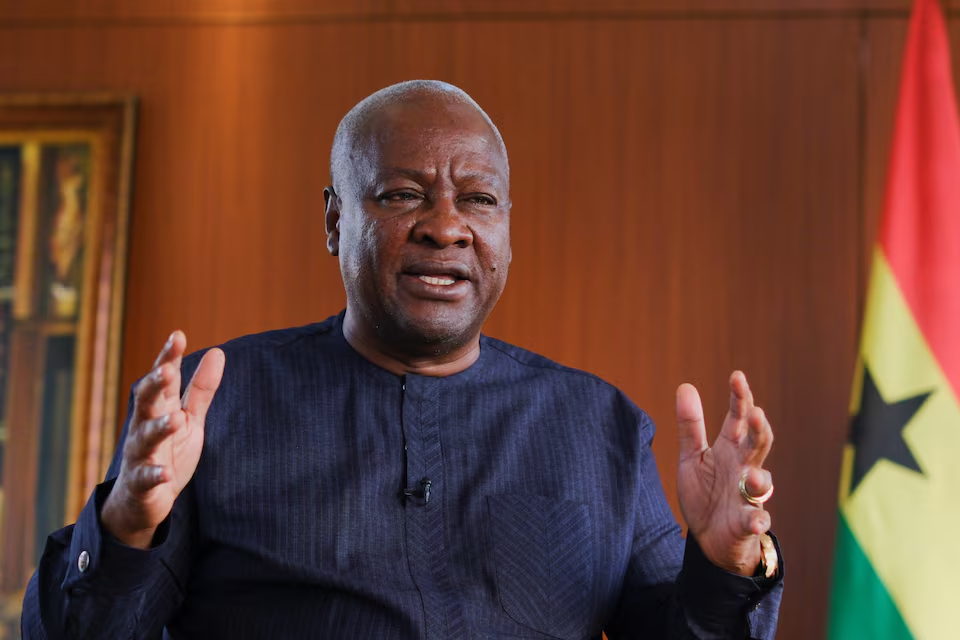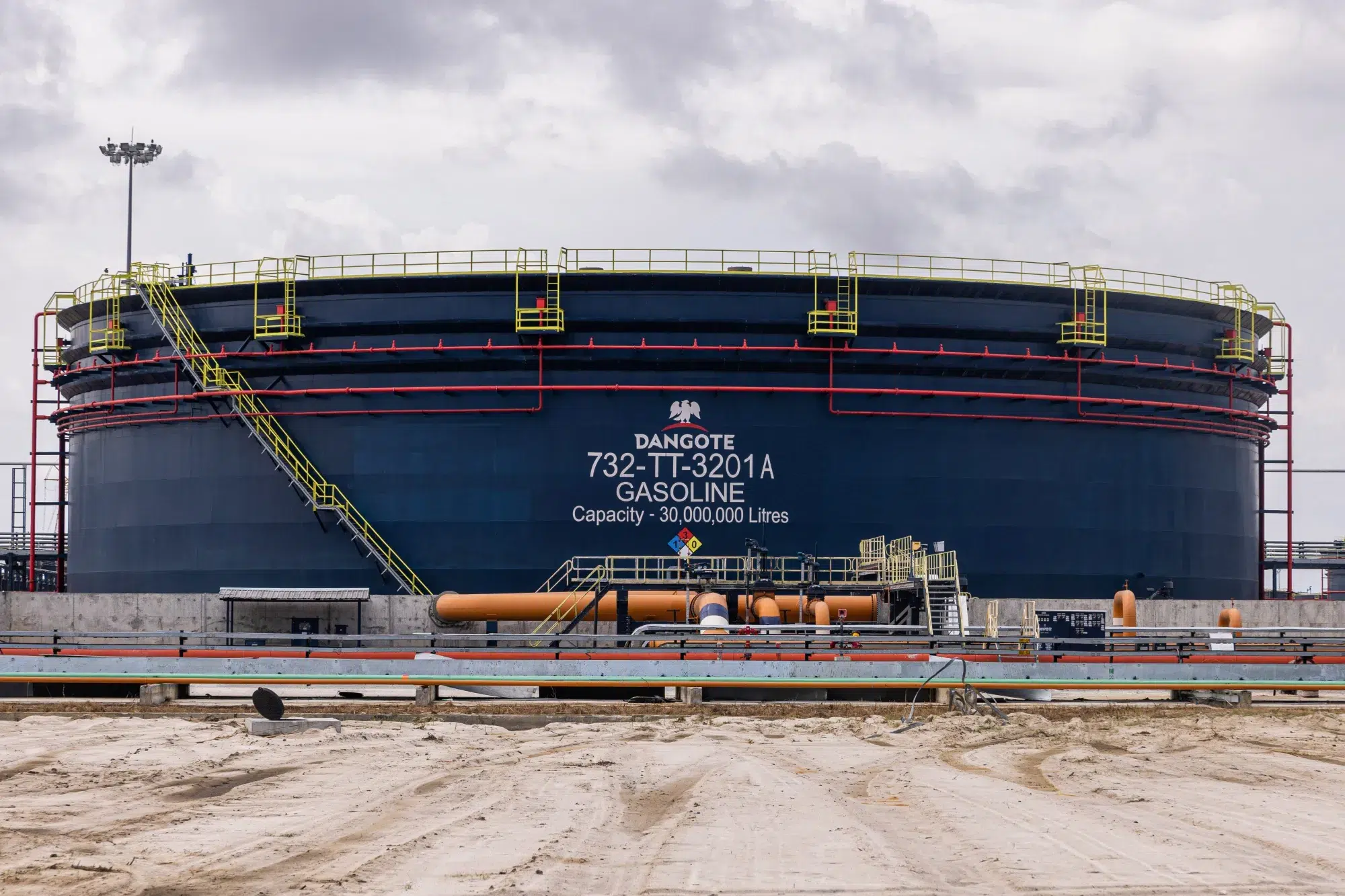Nigerian crude oil is enjoying an unexpected demand surge from Asian refiners as newly reimposed tariffs by the United States push major oil buyers in Asia to diversify away from U.S.-linked and sanctioned supply sources like Russia.
President Trump’s new tariff policy, targeted at countries the administration accuses of “unfair trade practices” or “currency manipulation,” has created uncertainty in crude markets.
While the bulk of the measures focus on goods, energy has not been spared, more so major oil-dependent economies like China and India.
About a week ago, President Donald Trump came down hard on India, doubling its tariff rate from 25% to 50% for fueling Putin’s war in Ukraine by continuing to buy massive quantities of Russian oil.
In recent weeks, refiners in India, Pakistan, South Korea, Thailand, and even parts of China are increasingly turning to African sources.
One of their desired destinations is Nigeria because of its light and sweet crude grades.
Though often go at a premium, Nigerian crudes are considered cost-competitive alternatives to their traditional mix of Middle Eastern and U.S. grades.
James Akwaji, a production engineer at Savannah Energy, says “Nigerian crude is highly valued for its quality, being a sweet crude with low sulfur content.”
“It is ideal for refining into gasoline and diesel,” he said.
Asian countries lift more of Nigerian crude
In recent months, Asian countries have increasingly sought crude from Nigeria because of reduced imports from Russia.
As of February 2025, India’s imports from Russia fell to a two-year low, prompting the country to accelerate efforts to diversify its energy sources.
That month, data from Reuters revealed that India’s crude imports from African countries surged to 330,000 barrels per day (bpd), more than double the January figure.
In March, the Indian Oil Corporation (IOC) lifted 2.5 million barrels of oil from Nigeria.
This included two million barrels of Nigeria’s Okwuibome crude and 500,000 barrels from Nigeria’s Akpo field.
These were lifted alongside another 500,000 barrels from Angola’s Mostarda fields.
This August, the Indian refiner reached another deal to buy another one million barrels of Nigeria’s Agbami crude oil for September delivery through Trafigura.
India has been Nigeria’s single largest buyer for over a decade, often taking 12–20% of total exports.
But it is not the only major Asian oil consumer buying Nigerian crude.
Other countries like China, Thailand, Indonesia and Pakistan have also lifted significant volumes in recent months.
Akwaji attributes this high demand to the region’s post-COVID economic recovery.
Currently, Pakistan Refinery Limited (PRL), a majority-owned subsidiary of Pakistan Oil Company, is planning to purchase 500,000 barrels of Nigeria’s Bonny Light crude in September.
The supply, which will be delivered through oil trader Vitol, is Pakistan’s first-ever Bonny Light cargo from Nigeria.
As of 2023, Pakistan was producing less than 100,000 barrels per day, an output insufficient to meet local fuel needs.
This has resulted in many refinery plants in the country depending on imports.
The country primarily sources its crude from Saudi Arabia and the United Arab Emirates, but high regional prices have prompted refiners in Pakistan and across Asia to diversify.
Additionally, Pakistan’s Cynergico has also signed a deal to lift some volume of U.S. crude this October.
The tariff ripple effect
America’s tariffs are hurting big Asian countries like China and India because of their continued economic alignment with Russia despite the latter’s “unprovoked” war in Ukraine.
Both countries’ energy imports from Russia have increased significantly since the war began in February 2022.
For instance, India’s import of Russian commodities has surged since the war began, from $8.25 billion in 2021 to $65.7 billion in 2024.
This is a sharp contrast compared to the US and European Union imports from Russia, which have dipped by over 80%.
Both Western partners seek to limit how much money Russia makes from oil, “Russia’s war machine”, in the Ukraine war.
They have announced several rounds of sanctions on Russia’s oil and banking sector since the war began in a bid to compel the Kremlin to end the war without success.
Now, the US government is just days away from imposing a 100% “secondary tariff” on India and China should the Kremlin fail to end the war within the stipulated timeframe.
This has caused an uproar in the energy markets.
As a result, refiners in the Asian region are in a buying frenzy that sees them rapidly moving to distance themselves from Moscow, turning to Africa and other suppliers.
Akwaji says “many [of these refiners] are reducing their reliance on Russian oil to avoid potential US sanctions.”
Meanwhile, a recent 10% import duty on certain oil grades, including U.S. WTI shipped to some Asian countries, has already narrowed the price advantage U.S. crude once enjoyed in Asia.
Dangote factor amplifies the trend
The Dangote Refinery in Lagos, which is ramping up toward full capacity has indirectly added momentum to the market recalibration.
As the refinery locks in more domestic supply, competition for Nigeria’s export barrels has intensified, tightening availability and supporting prices.
“With Dangote buying more Nigerian grades and Trump’s tariffs hitting U.S. flows into Asia, we’re seeing more bids from refiners that usually wouldn’t compete for these cargoes,” said a West Africa crude trader with a European oil major. “It’s a seller’s market right now.”
Nigeria’s largest refiner, Dangote Refinery, plans to process 100% local crude by the end of 2025.
The 650,000 bpd facility, currently operating at 85% efficiency, is undergoing upgrades that could raise efficiency by up to 20% before year-end.
Winners and potential frictions
In this growing demand for Nigerian crude, the biggest winners will most likely be Nigeria’s state oil company NNPC Limited and its joint venture partners including ExxonMobil, Shell, and TotalEnergies, who are securing better pricing differentials.
Nigerian crude, which often sells at a discount to dated Brent, has recently seen premiums rise by up to $2.00 per barrel for certain grades.
However, the imminent surge in crude lifting by Dangote may result in a decline in oil revenue for the Nigerian government which earns about 80% of its foreign revenue from oil exports.
A recent market data showed that local demand for Nigeria’s crude has caused traders to price it lower.
This makes more sense if you factor in the naira-for-crude policy currently being implemented between the Nigerian government and domestic refiners.
In September, NNPC is expected to increase supplies to the Dangote refinery, diverting Nigerian cargoes that should have been available for importers from Asia and even Europe.
Umoboho Oboho, a Canada-based market analyst warns that a worst-case scenario could unfold if the Dangote Refinery fails to secure sufficient local crude due to strong export demand.
“Such a development could severely disrupt the refinery’s operations, as the plant would have to bear additional shipping costs to import U.S. crude; costs that would ultimately be passed on to Nigerian consumers,” Oboho said.
Also, the surge in Asian buying could strain Nigeria’s traditional relationships with European refiners, who have long relied on its light sweet barrels to meet stringent EU fuel specifications.
“If Asian buyers keep snapping up these grades, Europe may have to pay more or look elsewhere,” noted an energy analyst at Bavijas Consulting.
Long-term outlook
Asian refiners who are operating in tight-margin environments find Nigerian crudes more attractive, and they are indeed going for them.
But whether this trend holds will depend on the durability of Trump’s tariff measures and the broader geopolitical climate, especially if Russian President Vladimir Putin will finally agree to end the war in the planned meeting with Trump.
Any rollback of the duties could see both U.S. and Russian crudes regain competitiveness in Asia.
Still, shipping economics and refinery configurations mean that Nigerian grades may keep a foothold in the region.
“Nigeria’s sweet crudes have always been competitive in Asia on a quality basis, but freight and pricing often tipped the balance toward Middle Eastern or U.S. barrels,” said the analyst. “Trump’s policies have flipped that equation; at least for now.”
For Nigeria, this is another opportune moment when geopolitics and market fundamentals are in its favour.
“Nigeria’s strong production capacity makes it a trusted partner in meeting this growing need,” Akwaji said.
But in the oil business, today’s tailwind can be tomorrow’s headwind.
The smart move is always to lock in the gains while they last. And that is the ride Nigerian producers like NNPC and its joint venture partners seem to be on at the moment.









